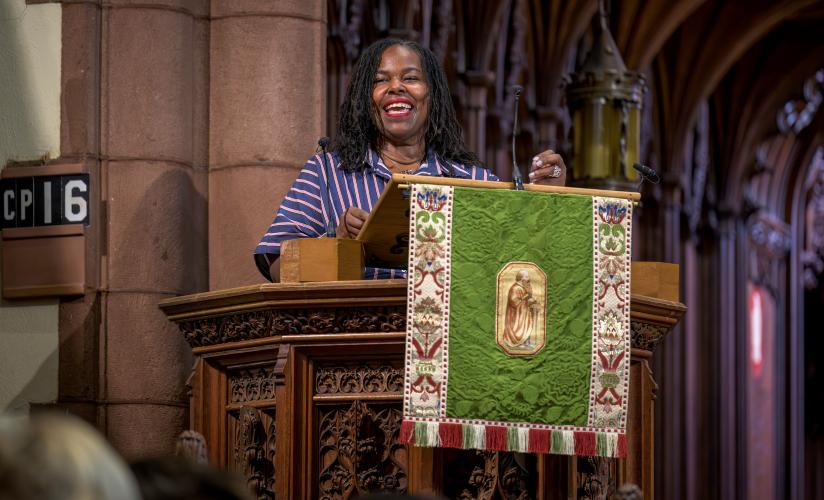

SPS pilots hybrid fuel strategy to decrease carbon emissions.
BY KRISTIN DUISBERG
After converting from burning oil to natural gas at the Central Heating Plant (CHP) in 2006, the School reduced its energy-related carbon emissions by 82%.
Now, as colder temperatures move into New Hampshire and the CHP goes to work heating dorms, classrooms and more, one of its three boilers will burn the renewable biofuel LR100 as part of a pilot program that was first evaluated from January through March 2023. Produced by Lifecycle Renewables, a company that specializes in food waste recycling and renewable fuels, LR100 is a cleaner-burning alternative to diesel fuel and can be used in oil-capable facilities. And, it has a significantly lower carbon emissions profile than the natural gas that still powers the plant’s other two boilers — with emissions of approximately 63 kilograms of carbon dioxide per million BTUs compared to 232 kilograms for natural gas. The results of the pilot program indicated that moving this year from 100% natural gas to a 70/30 natural gas/LR100 split will yield an overall reduction of 29% in the School’s greenhouse gas emissions from the CHP when factoring in actual combustion along with the delivery and transportation of fuel.
The switch is the latest step in the School’s ongoing effort to decrease the carbon emissions of a vast campus of beautiful — but old and often energy inefficient — buildings.
“The history leading to the hybrid burning of LR100 and natural gas at the School extends back nearly two decades and reflects our efforts to actively pursue existing options for reducing our carbon footprint while also anticipating new decarbonizing technologies,” says Vice Rector for Finance and Administration C. Brooks Seay. “This is an ongoing process that requires significant investments, but they are investments that we believe are essential for the future sustainability of the School and the environment as a whole.” SPS will join entities in the region that include Harvard University and Keene State College in burning biofuel; Seay estimates the School will burn 175,000 gallons of LR100 this heating season.
Other recent investments the School has made in the decarbonization of SPS range from replacing its gas-powered transportation fleet and equipment with electric models to making more environmentally conscious purchases for renovation projects and considering sustainability best practices in new construction. The 16,000 square-foot Fleischner Family Admissions Center, which will open in early 2025, is being built to LEED Silver standards, with solar panels on the south-facing roof that will offset about one-third of the building’s energy load. The center is the first of more than half a dozen planned construction projects in the coming years that will be built to LEED standards as part of a comprehensive plan that better connects the academic, athletic and residential spaces on campus while preserving and repurposing the School’s important heritage spaces.
(Pictured above: Students from science teacher Nick Babledelis’ Clean Energy Revolution class toured the Central Heating Plant and learned about energy at the School.)



